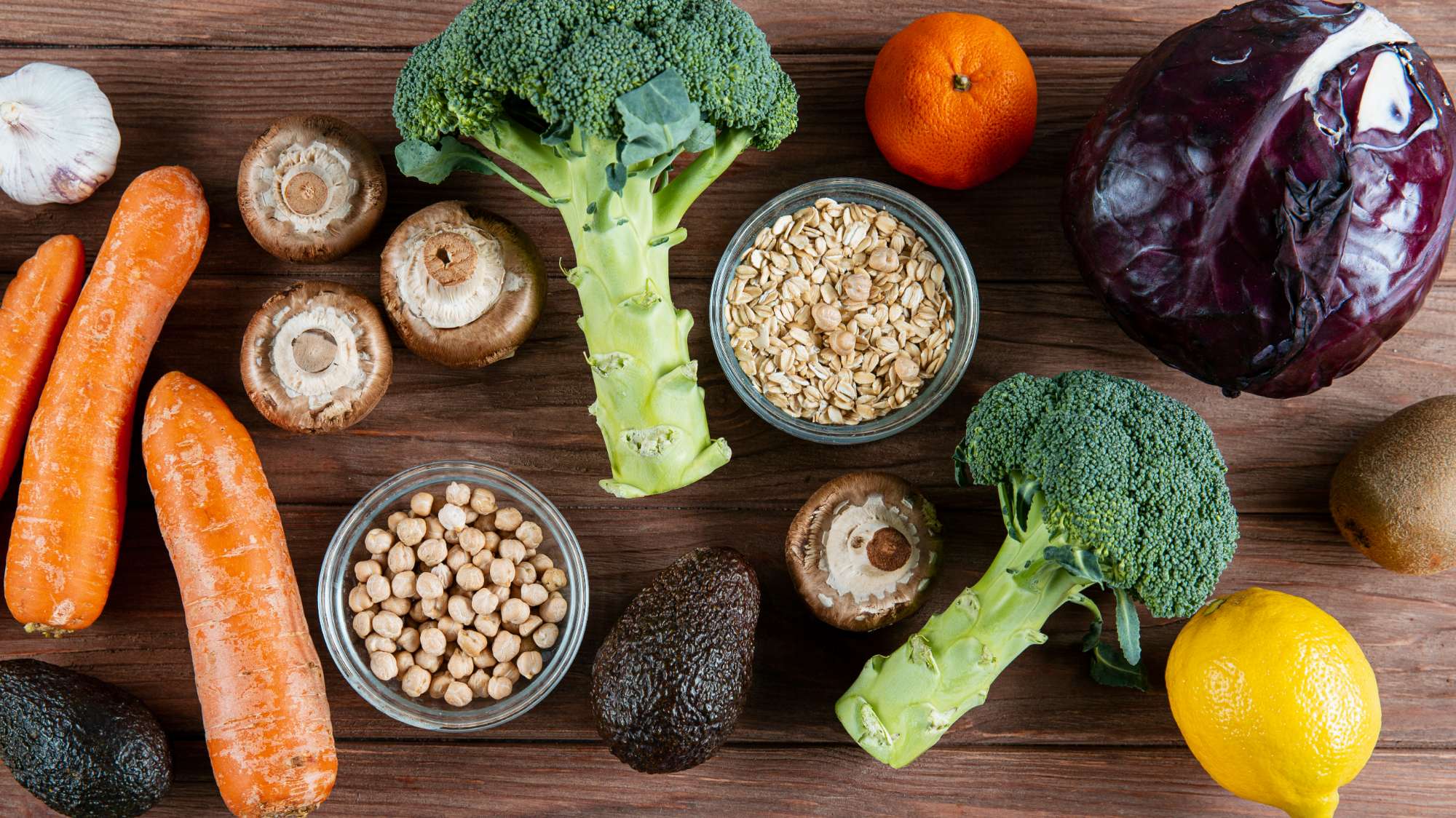The importance of vitamin C for your body
The importance of vitamin C for your body
Vitamin C is an essential vitamin, meaning your body can’t produce it. Yet, it has many roles and has been linked to impressive health benefits. It’s water-soluble and found in many fruits and vegetables, including oranges, strawberries, kiwi fruit, bell peppers, broccoli, kale, and spinach. The recommended daily intake for vitamin C is 75 mg for women and 90 mg for men.
Vitamin C, or ascorbic acid, is a water-soluble vitamin. This means that it dissolves in water and is delivered to the body’s tissues but is not well stored, so it must be taken daily through food or supplements.
Vitamin C plays a role in controlling infections and healing wounds, and is a powerful antioxidant that can neutralize harmful free radicals. It is needed to make collagen, a fibrous protein in connective tissue that is weaved throughout various systems in the body: nervous, immune, bone, cartilage, blood, and others. The vitamin helps make several hormones and chemical messengers used in the brain and nerves.

Recommended amounts
The amount of vitamin C you need each day depends on your age. Average daily recommended amounts for different ages are listed below in milligrams (mg).
- Birth to 6 months: 40 mg
- Infants 7–12 months: 50 mg
- Children 1–3 years: 15 mg
- Children 4–8 years: 25 mg
- Children 9–13 years: 45 mg
- Teens 14–18 years (boys): 75 mg
- Teens 14–18 years (girls): 65 mg
- Adults (men): 90 mg
- Adults (women): 75 mg
- Pregnant teens: 80 mg
- Pregnant women: 85 mg
- Breastfeeding teens: 115 mg
- Breastfeeding women: 120 mg
If you smoke, add 35 mg to the above values to calculate your total daily recommended amount.
Upper Intake Level (UL)
The Tolerable Upper Intake Level is the maximum daily intake unlikely to cause harmful effects on health. The UL for vitamin C is 2000 mg daily; taking beyond this amount may promote gastrointestinal distress and diarrhea. Only in specific scenarios, such as under medical supervision or in controlled clinical trials, amounts higher than the UL are sometimes used.

Vitamin C absorption and megadosing
The intestines have a limited ability to absorb vitamin C. Studies have shown that absorption of vitamin C decreases to less than 50% when taking amounts greater than 1000 mg. In generally healthy adults, megadoses of vitamin C are not toxic because once the body’s tissues become saturated with vitamin C, absorption decreases and any excess amount will be excreted in urine. However, adverse effects are possible with intakes greater than 3000 mg daily, including reports of diarrhea, increased formation of kidney stones in those with existing kidney disease or history of stones, increased levels of uric acid (a risk factor for gout), and increased iron absorption and overload in individuals with hemochromatosis, a hereditary condition causing excessive iron in the blood.
Absorption does not differ if obtaining the vitamin from food or supplements. Vitamin C is sometimes given as an injection into a vein (intravenous) so higher amounts can directly enter the bloodstream. This is usually only seen in medically monitored settings, such as to improve the quality of life in those with advanced stage cancers or in controlled clinical studies. Though clinical trials have not shown high-dose intravenous vitamin C to produce negative side effects, it should be administered only with close monitoring and avoided in those with kidney disease and hereditary conditions like hemochromatosis and glucose 6-phosphate dehydrogenase deficiency.
Vitamin C is involved with numerous metabolic reactions in the body, and obtaining the RDA or slightly higher may be protective against certain disease states. However, a health benefit of taking larger amounts has not been found in people who are generally healthy and well-nourished. Cell studies have shown that at very high concentrations, vitamin C can switch roles and act as a tissue-damaging pro-oxidant instead of an antioxidant. Its effects in humans at very high doses well beyond the RDA are unclear, and can lead to increased risk of kidney stones and digestive upset.

Signs of Deficiency
Vitamin C deficiency is rare in developed countries but may occur with a limited diet that provides less than 10 mg daily for one month or longer. In developed countries, situations at greatest risk for deficiency include eating a diet restricted in fruits and vegetables, smoking or long-term exposure to secondhand smoke, and drug and alcohol abuse. The following are the most common signs of a deficiency.
- Fatigue, malaise
- Iron-deficiency anemia due to decreased absorption of non-heme iron
- Scurvy, the hallmark disease of severe vitamin C deficiency, displays symptoms resulting from loss of collagen that weakens connective tissues:
* Skin spots caused by bleeding and bruising from broken blood vessels
* Swelling or bleeding of gums, and eventual loss of teeth
* Hair loss
* Delayed healing of skin wounds

Vitamin C and health
1. May reduce your risk of chronic disease
Vitamin C is a powerful antioxidant that can strengthen your body’s natural defenses.Antioxidants are molecules that boost the immune system. They do so by protecting cells from harmful molecules called free radicals.When free radicals accumulate, they can promote a state known as oxidative stress, which has been linked to many chronic diseases.
Studies show that consuming more vitamin C can increase your blood antioxidant levels by up to 30%. This helps the body’s natural defenses fight inflammation.
2. May help manage high blood pressure
Approximately one-third of American adults have high blood pressure. High blood pressure puts you at risk of heart disease, the leading cause of death globally.Studies have shown that vitamin C may help lower blood pressure in both those with and without high blood pressure.
An animal study found that taking a vitamin C supplement helped relax the blood vessels that carry blood from the heart, which helped reduce blood pressure levels.
Moreover, an analysis of 29 human studies found that taking a vitamin C supplement reduced systolic blood pressure (the upper value) by 3.8 mmHg and diastolic blood pressure (the lower value) by 1.5 mmHg, on average, in healthy adults. In adults with high blood pressure, vitamin C supplements reduced systolic blood pressure by 4.9 mmHg and diastolic blood pressure by 1.7 mmHg, on average.
While these results are promising, it’s not clear whether the effects on blood pressure are long term. Moreover, people with high blood pressure should not rely on vitamin C alone for treatment.
3. May lower your risk of heart disease
Heart disease is the leading cause of death worldwide). Many factors increase the risk of heart disease, including high blood pressure, high triglyceride or LDL (bad) cholesterol levels, and low levels of HDL (good) cholesterol.
Vitamin C may help reduce these risk factors, which may reduce heart disease risk. For example, an analysis of 9 studies with a combined 293,172 participants found that after 10 years, people who took at least 700 mg of vitamin C daily had a 25% lower risk of heart disease than those who did not take a vitamin C supplement.
Interestingly, another analysis of 15 studies found that consuming vitamin C from foods - not supplements - was linked to a lower risk of heart disease. However, scientists were unsure whether people who consumed vitamin-C-rich foods also followed a healthier lifestyle than people who took a supplement. Thus, it remains unclear whether the differences were due to vitamin C or other aspects of their diet.
Another analysis of 13 studies looked at the effects of taking at least 500 mg of vitamin C daily on risk factors for heart disease, such as blood cholesterol and triglyceride levels. The analysis found that taking a vitamin C supplement significantly reduced LDL (bad) cholesterol by approximately 7.9 mg/dL and blood triglycerides by 20.1 mg/dL.
In short, it seems that taking or consuming at least 500 mg of vitamin C daily may reduce the risk of heart disease. However, if you already consume a vitamin-C-rich diet, then supplements may not provide additional heart health benefits.

4. May reduce blood uric acid levels and help prevent gout attacks
Gout is a type of arthritis that affects approximately 4% of American adults. It’s incredibly painful and involves inflammation of the joints, especially those of the big toes. People with gout experience swelling and sudden, severe attacks of pain.
Gout symptoms appear when there is too much uric acid in the blood. Uric acid is a waste product produced by the body. At high levels, it may crystallize and deposit in the joints. Interestingly, several studies have shown that vitamin C may help reduce uric acid in the blood and, as a result, protect against gout attacks. For example, a study including 1,387 men found that those who consumed the most vitamin C had significantly lower blood levels of uric acid than those who consumed the least.
Another study followed 46,994 healthy men over 20 years to determine whether vitamin C intake was linked to developing gout. It found that people who took a vitamin C supplement had a 44% lower gout risk. Additionally, an analysis of 13 studies found that taking a vitamin C supplement over 30 days significantly reduced blood uric acid, compared with a placebo.
While there appears to be a strong link between vitamin C intake and uric acid levels, more studies on the effects of vitamin C on gout are needed.
5. Helps prevent iron deficiency
Iron is an important nutrient that has a variety of functions in the body. It’s essential for making red blood cells and transporting oxygen throughout the body.
Vitamin C supplements can help improve the absorption of iron from the diet. Vitamin C assists in converting iron that is poorly absorbed, such as plant-based sources of iron, into a form that is easier to absorb. This is especially useful for people on a meat-free diet, as meat is a major source of iron. In fact, simply consuming 100 mg of vitamin C may improve iron absorption by 67%. As a result, vitamin C may help reduce the risk of anemia among people prone to iron deficiency.
In one study, 65 children with mild iron deficiency anemia were given a vitamin C supplement. Researchers found that the supplement alone helped control their anemia.
If you have low iron levels, consuming more vitamin-C-rich foods or taking a vitamin C supplement may help improve your blood iron levels.

6. Boosts immunity
One of the main reasons people take vitamin C supplements is to boost their immunity, as vitamin C is involved in many parts of the immune system.
First, vitamin C helps encourage the production of white blood cells known as lymphocytes and phagocytes, which help protect the body against infection.
Second, vitamin C helps these white blood cells function more effectively while protecting them from damage by potentially harmful molecules, such as free radicals.
Third, vitamin C is an essential part of the skin’s defense system. It’s actively transported to the skin, where it can act as an antioxidant and help strengthen the skin’s barriers.
Studies have also shown that taking vitamin C may shorten wound healing time. What’s more, low vitamin C levels have been linked to poor health outcomes. For example, people who have pneumonia tend to have lower vitamin C levels, and vitamin C supplements have been shown to shorten the recovery time.
7. Protects memory and thinking as you age
Dementia is a broad term used to describe symptoms of poor thinking and memory. It affects over 35 million people worldwide and typically occurs among older adults.
Studies suggest that oxidative stress and inflammation near the brain, spine, and nerves (altogether known as the central nervous system) can increase the risk of dementia.
Vitamin C is a strong antioxidant. Low levels of this vitamin have been linked to an impaired ability to think and remember. Moreover, several studies have shown that people with dementia may have lower blood levels of vitamin C. Furthermore, high vitamin C intake from food or supplements has been shown to have a protective effect on thinking and memory as you age.
Vitamin C supplements may aid against conditions like dementia if you don’t get enough vitamin C from your diet. However, additional human studies are needed to understand the effects of vitamin C supplements on nervous system health.

Unproven claims about vitamin C
While vitamin C has many scientifically proven benefits, it also has many unfounded claims supported by either weak evidence or no evidence at all. Here are some unproven claims about vitamin C:
- Prevents the common cold. While vitamin C appears to reduce the severity of colds and recovery time by 8% in adults and 14% in children, it does not prevent them.
- Reduces cancer risk. A handful of studies have linked vitamin C intake to a lower risk of several cancers. However, most studies have found that vitamin C does not affect the risk of developing cancer.
- Protects against eye disease. Vitamin C has been linked to reduced risks of eye diseases like cataracts and age-related macular degeneration. However, vitamin C supplements have no effect or may even cause harm.
- May treat lead toxicity. Although people with lead toxicity appear to have low vitamin C levels, there is no strong evidence from human studies that show vitamin C can treat lead toxicity.

Food Sources
Fruits and vegetables are the best sources of this vitamin.
- Citrus (oranges, kiwi, lemon, grapefruit)
- Bell peppers
- Strawberries
- Tomatoes
- White potatoes
- Cruciferous vegetables (broccoli, Brussels sprouts, cabbage, cauliflower).
Did you know?
Vitamin C improves the absorption of non-heme iron, the type of iron found in plant foods such as leafy greens. Drinking a small glass of 100% fruit juice or including a vitamin-C-rich food with meals can help boost iron absorption.
Vitamin C can be destroyed by heat and light. High-heat cooking temperatures or prolonged cook times can break down the vitamin. Because it is water-soluble, the vitamin can also seep into cooking liquid and be lost if the liquids are not eaten. Quick heating methods or using as little water as possible when cooking, such as stir-frying or blanching, can preserve the vitamin. Foods at peak ripeness eaten raw contain the most vitamin C.
Vitamin C serums and skin creams are popular because normal skin typically contains high concentrations of vitamin C, which stimulates collagen production and protects against damage from UV sunlight. However, research suggests that topical vitamin C may have limited benefits, as very little can penetrate the skin’s surface and will not produce additional benefit if a person obtains adequate vitamin C through food or supplements.
Compiled and penned by Crocus Media
.jpg)

